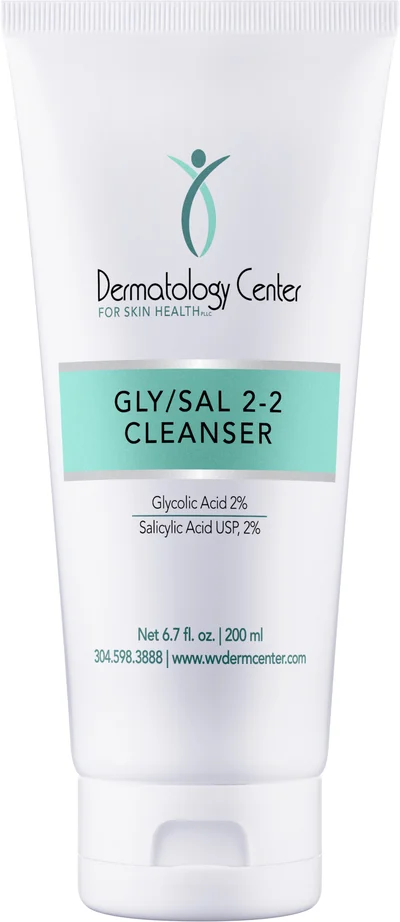Facial cleansing is the first step in your overall skincare routine. As consumers, we are faced with an overwhelming number of products when choosing an appropriate facial cleanser.
Unfortunately, picking the wrong cleanser can cause adverse skin effects, including:
- Dryness
- Irritation
- Flaking
- Acne
- Flare-ups of chronic skin conditions such as eczema and rosacea
Cleanser choice should be tailored based on your skin needs. Here we focus on the types of cleansers available on the market. Our goal is to help you pick the cleansing product you need to help maximize outcomes and maintain clear, healthy-looking skin.
HOW DO CLEANSERS AFFECT THE SKIN?
Cleansers play an essential role in skin care because they affect the:
- Skin barrier
- pH of the skin
- Presence of bacteria
- Condition of the pores
- Penetration of the post cleanser–applied ingredients
Knowing which cleansing product to use is based on your skin type. Proper ingredients in your cleanser can help you achieve and maintain healthy skin.

TYPES OF CLEANSERS
- Foaming agents produce foam and display the greatest cleansing potency. These detergents remove lipids from the skin, so you should only use it if you have oily skin. Foaming cleansers are sometimes used before procedures to ensure that your skin is clean from makeup and debris, and to decrease the time needed for topical anesthetic to penetrate the skin. Avoid foaming cleansers if you have dry or sensitive skin.
- Non-foaming cleansers were developed through efforts to reduce detergent irritancy. This class of cleansers includes compounds that deposit lipids on the skin, such as creams, lotions and oils. Cream, milk, cold creams, and oil cleansers fall into this category. These products usually have a neutral pH.
- Hydroxy acid cleansers contain Alpha hydroxy acids (AHAs) are well suited for use by individuals with dry skin because hydroxy acids act as humectants (water-soluble materials with high water absorption capabilities). These hydrophilic(water-loving) cleansers provide exfoliation and are appropriate for individuals with dry skin and acne. Because of their low pH, they make it harder for the bacteria to thrive on the skin. In addition, the exfoliating activity imparted by hydroxy acids sets the stage for better penetration into the stratum corneum (outer layer of the epidermis) by ingredients applied after the cleanser.
- Salicylic acid (SA) cleansers are a member of the aspirin family and therefore have anti-inflammatory properties. Salicylic acid is lipophilic (love fat) and can penetrate through the oil pores of the skin. They are the most effective cleansers to unclog pores. Therefore, SA cleansers are ideal for use by individuals with oily, sensitive skin, prone to acne, seborrheic dermatitis, or rosacea. Salicylic acid also enhances skin barrier penetration by ingredients applied after its use and is great if you have oily skin. Dry skin types, especially those on retinoids and benzoyl peroxide, will not tolerate SA as well as they will AHA cleansers.
- Antibacterial cleansers contain ingredients that reduce P. acnes (bacteria involved in acne) and other types of bacteria on the skin. Therefore, benzoyl peroxide (BP) is a highly effective cleanser for patients who are prone to acne, folliculitis (infected hair follicles), and other skin infections. Unfortunately, benzoyl peroxide can be highly irritating and is not well tolerated by patients with dry skin.
View all of our cleansers here.
HOW TO PICK THE BEST CLEANSER FOR YOU
Know your skin type and what you are treating before choosing a cleanser.
- Oily: This one is pretty self-explanatory. If you have excess oil all over your skin.
- Combination: Surprise, surprise. This is a combination of dry and oily skin. So, your T-zone (forehead, nose, and chin) are oily and your cheeks are dry.
- Dry: If your skin is flaky, rough and drinks up the moisturizer.
- Sensitive: Easily irritated skin—especially when you interact with new products or environments—is an indicator of sensitive skin.
SKIN CARE | THE DERMATOLOGY CENTER FOR SKIN HEALTH, PLLC
If you are unsure of what cleanser or any other skin care product you should be using, please don’t hesitate to make an appointment at our center by giving us a call at 304-598-3888.
Written by Dr. Michele Maouad
Board-Certified Dermatologist Dr. Michele Maouad is a highly skilled and experienced American board-certified dermatologist and dermatologic surgeon. She completed medical school at West Virginia University and dermatology residency at the University of Pittsburgh Medical Center. Dr. Maouad established her private practice, the Dermatology Center for Skin Health PLLC, in 2005. Dr. Maouad is an advocate for her patients and insures they receive the best dermatologic care. She continually updates her knowledge and skills at national medical conferences to ensure her patients receive only the most current and advanced care.


